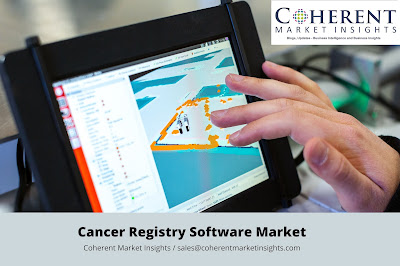
Cancer registry software is a tool used to store, manage, and provide access to cancer-specific information that helps in the creation of cancer registries. A cancer registry uses cancer registry software to collect, organize, and store cancer-specific info/data of cancer patients to evaluate outcomes, conditions, and drug/medical device exposure. Registry Plus is a suite of publicly available free software to collect and process cancer registry data. Moreover, this software, compliant with national standards, is made available by the CDC to implement the National Program of Cancer Registries (NPCR).
Cancer registries play an important role in cancer surveillance, which tells people where they are in efforts to reduce the burden of cancer. Thus, with the increasing prevalence of cancer around the world, the demand for cancer registry software is also increasing at a rapid pace. For example, according to the American Cancer Society, in 2021, there will be an estimated 1.9 million new cancer cases diagnosed and 608,570 cancer deaths in the United States. Cancer registrars capture a complete summary of patient history, diagnosis, treatment, and status for every cancer patient in the United States, and other countries.
Cancer registry software is also used to maintain and/or add new cancer incidence reports in the system. Cancer registries are often used as a resource where information for cancer screening and possible causes of cancer is stored. Cancer registry software helps identify the trends and improve patient care to fight cancer, as cancer is one of the leading causes of death worldwide. The collection begins with identifying cancer patients who have been diagnosed or treated in hospitals, surgical centers, radiology departments, diagnostic laboratories, outpatient clinics, or other providers (such as pharmacists), who diagnose or treat cancer patients.
Stringent regulations, laws, and policies are enforced by the North American Association for Central Cancer Registries to support the handling of information in cancer registries. This in turn safeguards cancer patients’ privacy and confidentiality.










0 Comments